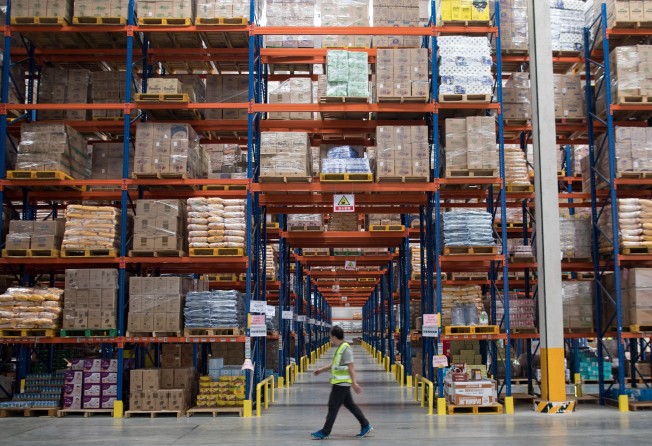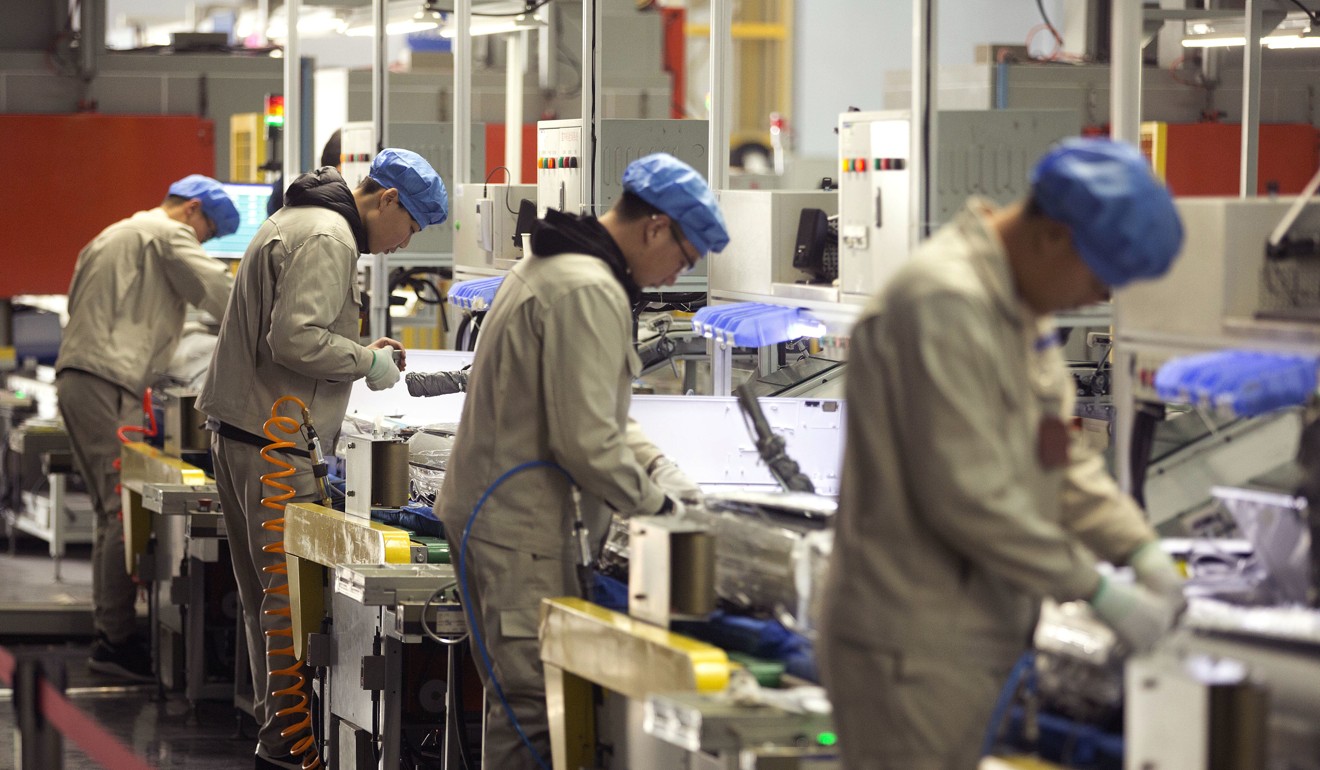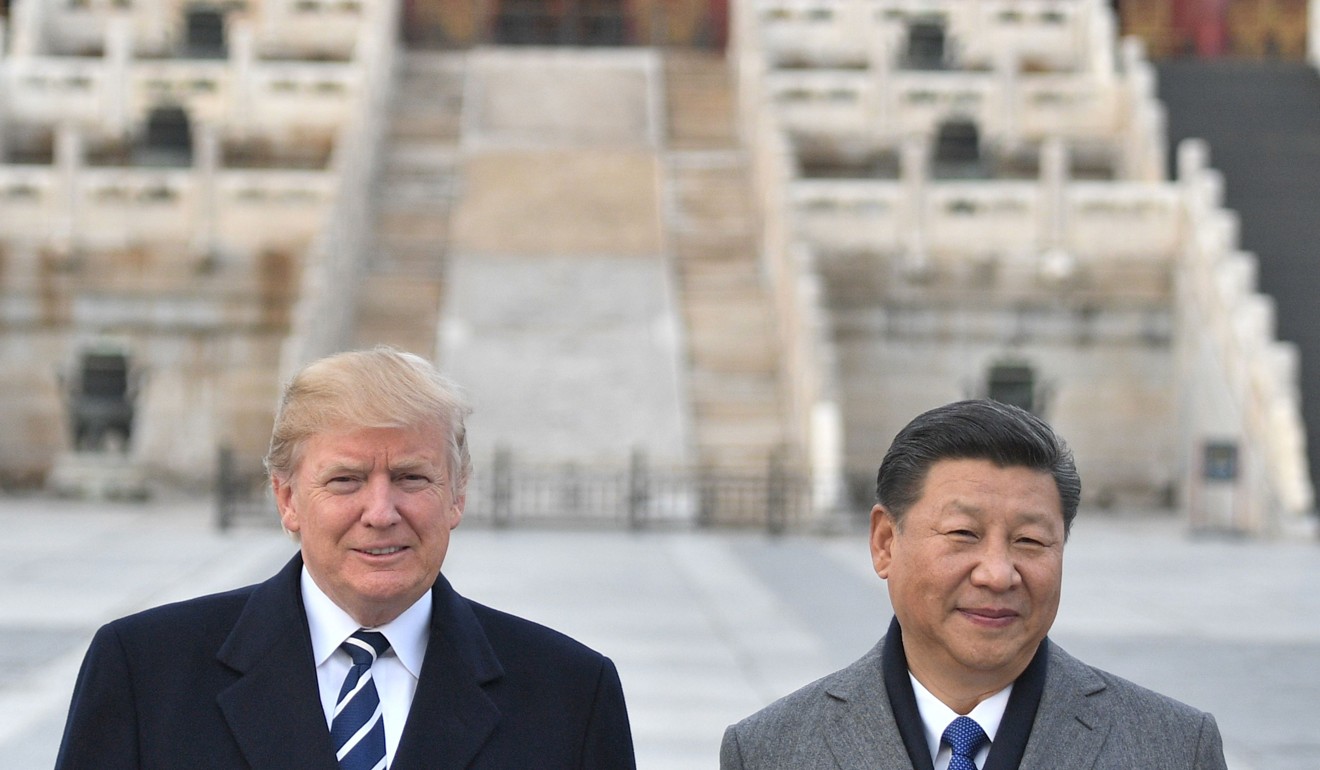As US-China trade war talks enter the final stretch, is Beijing ready to tackle its structural issues?
- Though there might not be a deal by the time Trump meets Xi, China can address US concerns by improving credibility over everything from IP protection to subsidies for its favoured industries

As top Chinese and American negotiators huddled in Beijing on Thursday and Friday to haggle over a comprehensive agreement to defuse the trade war, international reactions have been a mixed bag of trepidation and optimism.
Following the conclusion of the two-day negotiations, both sides cited “progress” and agreed to continue talks in Washington next week, with the March 1 deadline to prevent higher tariffs on imports from China less than two weeks away.
In a meeting with United States Trade Representative Robert Lighthizer and Treasury Secretary Steven Mnuchin, Chinese President Xi Jinping expressed hope that both sides would make unremitting efforts to achieve a win-win agreement.
Throughout last week, his American counterpart Donald Trump also raised hopes by saying the talks in Beijing went “very well” and he would meet Xi “very soon”, even though the two may not do so before March 1. But, characteristically, he also dangled the prospect that he could delay the deadline to ensure the success of the talks.
At the time of writing on Friday evening, both sides remained tight-lipped about the meetings, but large gaps are still believed to remain over the so-called structural issues holding up the trade talks – Chinese theft of US intellectual property, forced transfer of technology, weak protection of IP rights, industrial subsidies for favoured industries and equal treatment for foreign enterprises. In particular, the two sides are still sparring over how an agreement should be verified and enforced.
There is little doubt that some major international media outlets, which have consistently sounded a note of caution ever since the talks began, would again play up the drawn-out discussions as signs the Chinese may balk at some of those demands.
Last month, Xi warned in a meeting with provincial leaders in Beijing that they should be fully prepared for potential turbulence and disruption ahead, giving rise to speculation that China would play tough in trade talks with the US and prepare for the worst-case scenario.
While the possibility of no deal is real, there are also good reasons to believe that this time China is much more willing to tackle the structural issues in its economy than outsiders have previously given it credit for.
As repeatedly argued in this column, the persistent pressure from the Trump administration has helped prod Chinese leaders to stop dithering, overcome opposition from vested interest groups, and undertake the painful structural reforms that are all too necessary to move the Chinese economy to a more sustainable and healthier track.
For instance, intellectual property is often touted as one of the make-or-break issues in the trade talks. In fact, Chinese leaders have already decided to take sustentative measures to beef up IP protection and enforcement, including plans to pass a new IP law and set up more IP courts.
At a time when the authorities have mapped out an ambitious plan to propel China’s economic growth through innovation, it is also in the country’s own best interests to better protect IP – over the past seven years, China has been the undisputed world leader in patent applications worldwide. It is also expected to take effective measures to address US allegations of rampant IP theft and forced technology transfers.

China’s clandestine intelligence services had previously been encouraged to go after the commercial secrets of foreign companies to aid the country’s economic development, but the central government is believed to have already halted the practice at the national level. However, there have been instances in which some intelligence services at the provincial levels are still involved in such practices.
In the initial years of opening up, Chinese officials publicly advocated the policy of “market access for technology” in which foreign investors were compelled to set up joint ventures with Chinese local partners and hand over technology to gain market access.
But that policy has achieved mixed results. Take China’s automotive industry, which has already become the world’s largest through three decades of rapid development. The bulk of the market is still dominated by a handful of foreign brands including General Motors, Ford, and several other European and South Korean brands, even though they are required to produce vehicles through joint ventures with their Chinese partners.
Still, as part of pressure from the Trump administration, China has already allowed Tesla to set up a wholly owned venture in Shanghai to produce the Model 3 electric car.
There are some other issues on which China is unwilling to budge, but there is still room for improvement. Industrial subsidies and preferential treatment for state-owned enterprises are believed to be another sticking point.

China is unlikely to accede to US demands to stop providing subsidies and government support for favoured industries, as Beijing has rightly argued that almost every country – including the US and other Western countries – has provided subsidies or government support for certain industries one way or another.
However, what China can and should do is to make those subsidies or government support as transparent as possible so as to improve efficiency and monitoring.
Even though the Chinese government has vowed to make its state enterprises bigger and stronger, it is also facing rising pressure from foreign firms and domestic private businesses to level the playing field for market access and banking loans.
Already, some senior Chinese officials, including central bank governor Yi Gang, have started to preach the concept of “competitive neutrality” to argue there could be a level playing field between the country’s state, private and foreign firms.
How to verify and enforce China’s pledges is another source of intense discussions between US and Chinese negotiators, given the country’s history of not complying with obligations stipulated in World Trade Organisation rules.
To ease concerns, China can enlist overseas help to improve transparency and credibility.
For instance, overseas investors have long been sceptical about IP enforcement by Chinese courts and local officials. Indeed, China only started to pay some attention to IP protection following its accession to the WTO in 2001, and it lacks adequate laws and legal professionals, to say the least.
To catch up, China can set up an international advisory panel and recruit internationally renowned IP judges, lawyers, and legal professionals to consult on landmark cases involving foreign companies. This would go some way to boost the credibility and effectiveness of its enforcement.
Some analysts have compared the discussions to “pulling teeth”, not a bad metaphor as they enter the home stretch. But a final agreement is unlikely until Xi and Trump meet personally to haggle over the most painful parts – whether they meet the deadline or not. ■
Wang Xiangwei is the former editor-in-chief of the South China Morning Post. He is now based in Beijing as editorial adviser to the paper